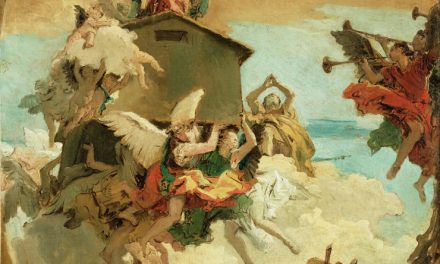In the midst of the New Testament letters, tucked away and easy to miss as you’re flipping to find Hebrews, sits Paul’s letter to Philemon. One of the shortest books of the New Testament, it might leave you scratching your head as to why it is included the canon of Scripture.
The Letter
It is Paul’s only letter written to an individual that is preserved and included in the canon of Scripture. Philemon was the head of a Christian community (probably near Colossae) which met in his home. Others addressed in the letter include Apphia, possibly his wife, and Archippus, a leader in the church at Colossae (see Col 4:17), who was possibly their son.
Even though the letter is short, it follows the same Pauline format as his other epistles: greetings, thanksgiving to God or prayer, a message, and words of farewell. This is considered one of his captivity epistles and was probably written during his first Roman imprisonment, when he was kept under house arrest (Acts 28). This sets the scene for one of the major themes of this short letter: freedom.
It seems that Philemon’s slave, Onesimus, has run away, and Paul has met him during his time in Rome. Onesimus is now a Christian. Paul is writing to Onesimus’ master, requesting that Philemon forgive him… and free him.
Should He Stay or Should He Go?
Is it correct for Paul to send Onesimus back? There are a few ways to view the situation. In the eyes of the Greco-Roman world, Onesimus is a possession that must be returned and therefore punished. But we know that slavery is immoral. So it’s tempting to say Onesimus was right to run away and Paul is wrong to send him back.
But an important part of Paul’s decision is that he is allowing Philemon to do the right and virtuous thing in freedom. Paul is sending Onesimus back so he can be forgiven, and debts can be paid (Paul offers to pay any damages himself). Philemon can receive the man that was once his slave now as a brother in Christ.
Paul makes it clear what he wants Philemon to do, but he is not going to force him to do it. He is sending Onesimus back so that Philemon is free to do the right thing: “I should have liked to retain him for myself, so that he might serve me on your behalf
in my imprisonment for the gospel, but I did not want to do anything without your consent, so that the good you do might not be forced but voluntary” (Phil 13-14).
Freedom
Paul is acting the way Christ acts. The Lord desires our obedience and our love in freedom. He will not force or coerce us. “For freedom Christ has set us free,” Paul tells the Galatians (5:1). The freedom he refers to is true freedom, the freedom of sonship, the freedom to do as we ought, to choose virtue, and to live in joy.
How many of us live the Catholic life out of submission rather than joy? Take a moment to think about the parable of the prodigal son. How many of us are the first son? We live in the home of the Father, but we see ourselves in servile obedience, more as slaves than sons. Our obedience is with the gritted teeth of compliance, rather than a freeing act of joy.
Paul asks Philemon to receive Onesimus as he would receive Paul. At the very least, this is a plea to not punish Onesimus and to welcome him back into his home. But think of how Philemon would have receive the great apostle Paul! With a fine feast, a comfortable guest room, and great hospitality. Paul is asking him to welcome Onesimus back as the Father welcomed the prodigal son back. It is even more radical, since Onesimus was never a son who had wandered, but a slave who had escaped. But now he is a brother in baptism.
Paul asks great things of Philemon. He asks him to have mercy and to let charity rule his heart rather than justice. In the eyes of the Roman Empire, Philemon has the right in to punish Onesimus. At the same time, in the eyes of the Church, Paul has the right to command Philemon how to respond. The letter is full of the theme of freedom. Paul does not force his hand, but gives Philemon the freedom to act…the way Christ would act.
Justice or Charity?
St. Josemaria Escriva wrote, “Be convinced that justice alone is never enough to solve the great problems of mankind. When justice alone is done, don’t be surprised if people get hurt. The dignity of man, who is a son of God, requires much more. Charity must penetrate and accompany justice because it sweetens and deifies everything: ‘God is love’. Our motive in everything we do should be the love of God, which makes it easier for us to love our neighbor and which purifies and raises all earthly loves on to a higher level.”
If Philemon clung to justice, he would be less free than Paul, sitting in a prison cell. Mercy and forgiveness and love of neighbor set us free to live as sons and daughters.
Ancient tradition is that Onesimus was indeed freed (we see him delivering Paul’s letter to the Colossians in Colossians 4:9) and became a bishop. May we imitate Philemon–not allowing past wrongs to enslave us, not letting justice trump charity–and choose instead to live in the freedom of the house of the Father.














